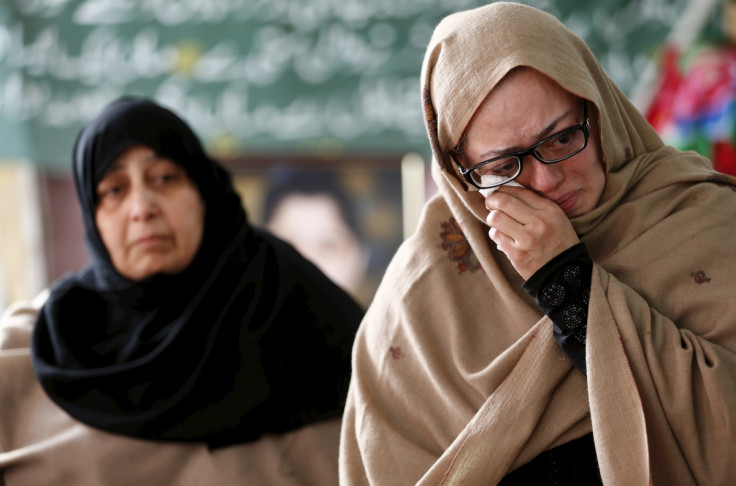Peshawar school massacre: Pakistan is still not safe

It has been one year since the deadly Taliban attacked the Army Public School in Peshawar and murdered 144 people, mostly children under the age of 16. Following the attack, the Pakistani government implemented the National Action Plan against terrorism, agreed upon by all political parties, as well as the restoration of the death penalty.
Meanwhile, the military continued to conduct the Zarb-e-Azb military operation against terrorists, concentrating its efforts in North Waziristan and in Karachi. Those operations have been successful to a large degree with the Pakistani Taliban all but decimated, and people in Karachi and the Frontier areas feel safer and terrorist attacks in general have been hugely reduced.
The parents of the victims feel let down by the government, which has failed to start a judicial enquiry into the security failures behind the attack.
But a year on from the attacks we have been left with more questions than answers about the state of security in Pakistan today. The reinstitution of the death penalty for terrorism cases has worried human rights defenders, and we have had some controversial cases with prisoners convicted as minors being executed, others being hanged for murders that have had nothing to do with terrorism cases.
On the other hand, how do you enforce security when there appear to be no real consequences for terrorist attacks? The majority in Pakistan see the death penalty as justified, others see it as a necessary evil in the fight against terrorism, and a tiny minority of liberals and human rights defenders consider it wrong under any circumstance. But they offer no real alternative because our justice system and jails are under so much pressure that cases almost never come to a satisfactory legal resolution.
Significantly, the attack called into question the government's strategy of distinguishing between "good" and "bad" Taliban – bad ones being Taliban who conducted attacks in Pakistani territory and "good" ones being those who fought in Afghanistan supposedly against US invaders, but also who fought in order to advance Pakistan's strategic interests in Afghan territory.
This strategy had never been questioned before, but after the APS attack, it came out into the open. Today, though, we still ask whether the Pakistani leadership has truly abandoned that policy, and signs are that it hasn't. This continues to pose problems for our relationship with Afghanistan, as Daud Khattak wrote in his article for Foreign Policy yesterday. And that has greater consequences for the security of the region, which still hangs in the balance today.
On a personal level, for the victims' families, there is still much grief and anger about the attacks. The entire nation commemorated this terrible tragedy: all schools and colleges closed on December 16, the newspapers, airwaves and social media are filled with special reports on the attack.
The Prime Minister Nawaz Sharif announced recently that 122 schools and colleges would be renamed after the victims. The ISPR, the Army's media arm, has released a new song sung by schoolchildren that pays tribute to the victims, saying that "education is the best revenge" and that we must "educate the children of our enemy". The tragedy is being felt in a real and visceral way by everyone in Pakistan today.
But the parents of the victims feel let down by the government, which has failed to start a judicial enquiry into the security failures behind the attack. They see this as a failure on the part of both the federal and provincial governments while the army is generally seen as more determined to actually fight back against terrorism very visibly.
In all, where we are a year on from the APS attack highlights the basic problem of Pakistan: that we still haven't decided what justice really means. When all the institutions that are meant to achieve and implement justice are so weak, and still operate on their own arbitrary definitions of the shape and look of that justice, how can we expect a national consensus on what safety, security, and peace will look like in Pakistan either?
Bina Shah is a writer based in Karachi, Pakistan. She is a frequent contributor to the International New York Times, the Dawn, Al Jazeera, and Newsweek Pakistan. Her novel, A Season For Martyrs, takes place in the last three months of Benazir Bhutto's life. Twitter: @binashah
© Copyright IBTimes 2025. All rights reserved.






















